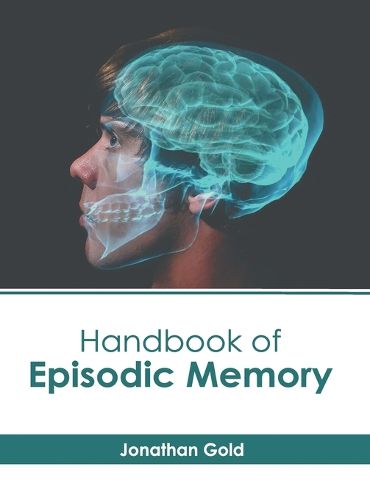Readings Newsletter
Become a Readings Member to make your shopping experience even easier.
Sign in or sign up for free!
You’re not far away from qualifying for FREE standard shipping within Australia
You’ve qualified for FREE standard shipping within Australia
The cart is loading…






Memory is the ability of the brain to encode, store, and recall data or information when needed. It is the long-term retention of information for the goal of influencing future action. Episodic memory is the memory of everyday events that can be explicitly stated or conjured. It is a compilation of prior personal experiences that occurred at certain periods and locations. Humans may also recall their exact impressions, feelings and thoughts during a given encounter. Episodic memory comprises a synopsis of sensory-perceptual-conceptual-affective processing. It is able to retain activation/inhibition patterns over a long period of time. The hippocampus which is part of the medial temporal lobe is essential for the formation of new episodic memories. New procedural memories can be developed without the medial temporal lobe, but they are unable to recollect the events that transpired at that time. Such selected concepts that redefine the study of episodic memory have been presented in this book. Those in search of information to further their knowledge will be greatly assisted by it.
$9.00 standard shipping within Australia
FREE standard shipping within Australia for orders over $100.00
Express & International shipping calculated at checkout
Memory is the ability of the brain to encode, store, and recall data or information when needed. It is the long-term retention of information for the goal of influencing future action. Episodic memory is the memory of everyday events that can be explicitly stated or conjured. It is a compilation of prior personal experiences that occurred at certain periods and locations. Humans may also recall their exact impressions, feelings and thoughts during a given encounter. Episodic memory comprises a synopsis of sensory-perceptual-conceptual-affective processing. It is able to retain activation/inhibition patterns over a long period of time. The hippocampus which is part of the medial temporal lobe is essential for the formation of new episodic memories. New procedural memories can be developed without the medial temporal lobe, but they are unable to recollect the events that transpired at that time. Such selected concepts that redefine the study of episodic memory have been presented in this book. Those in search of information to further their knowledge will be greatly assisted by it.